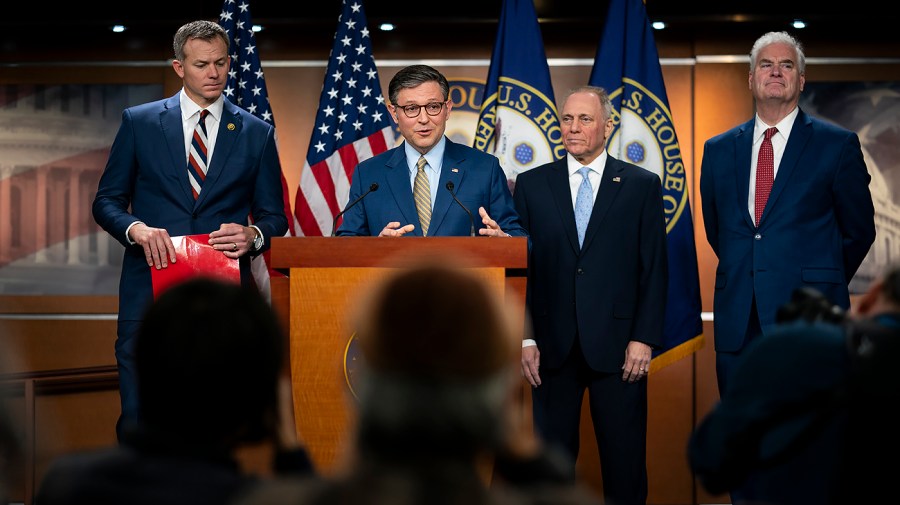
The House on Friday will make another attempt at passing legislation to avert a government shutdown, staging a vote on a revamped spending proposal that excludes the debt limit hike initially demanded by President-elect Trump, three sources told The Hill.
The package would fund the government at current levels through March 14, extend the farm bill by one year and appropriate billions of dollars in disaster aid and assistance for farmers — the same provisions that were in Speaker Mike Johnson’s (R-La.) plan B proposal that failed on the House floor Thursday night.
But in a departure from that measure, Friday’s bill will not include language to raise the debt limit after Democrats and a handful of Republicans came out against the provision — despite Trump initially demanding that such language be included.
House GOP leadership plans to bring the package to the floor under the fast-track suspension of the rules process, which bypasses the need to approve a procedural rule but require two-thirds support for passage. It remains unclear if Democrats will support the package.
The House is expected to vote on the new proposal around 5 p.m., a source told The Hill.
Speaker Mike Johnson (R-La.) emerged from a long and tense meeting with his GOP conference in the Capitol basement to announce the developments and vow that there would be no shutdown.
“There is a unanimous agreement in the room that we need to move forward,” he told reporters.
“We will not have a government shutdown,” he continued. “And we will meet our obligations for our farmers who need aid, for the disaster victims all over the country, and for making sure that military and essential services and everyone who relies upon the federal government for a paycheck gets paid over the holidays.”
In lieu of dealing with the debt limit in the funding plan, as Trump had wanted, Republicans struck an agreement to raise the debt ceiling next year by $1.5 trillion in exchange for $2.5 trillion in net cuts to spending, done through a reconciliation package, two sources confirmed to The Hill.
The reconciliation process is a special procedure that gets around the Senate filibuster, allowing Republicans who will have trifecta control of government to push through their priorities without needing Democratic support. Republicans have long been planning to use this process to advance an ambitious legislative agenda that includes extending Trump’s 2017 tax cuts and addressing border security.
It is not clear which programs would be cut. An original version of that spending agreement presented to members targeted mandatory spending cuts, a bucket that includes Social Security, Medicare, Medicaid, veterans benefits, but one member said the final agreement removed the word “mandatory.”












